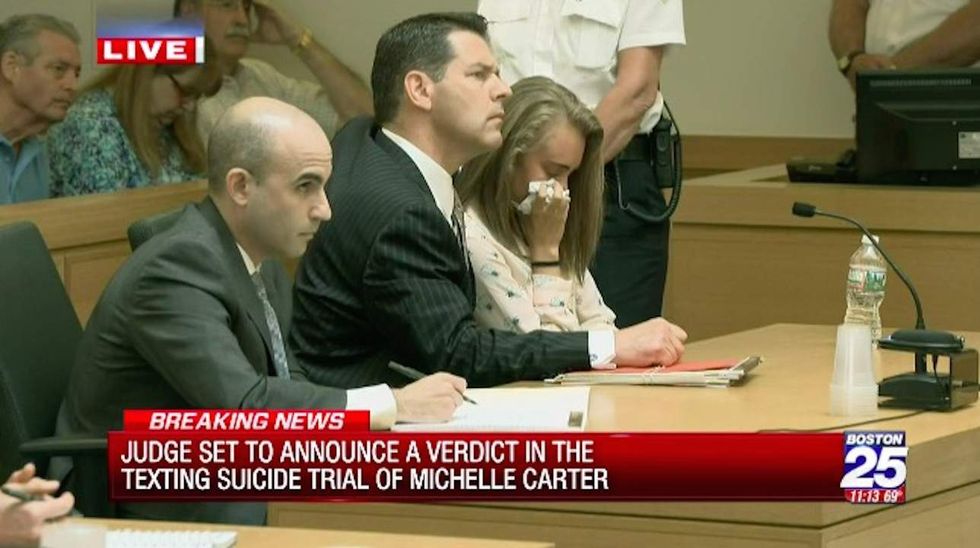
Michelle Carter, 20, was found guilty Friday of involuntary manslaughter for pushing her teenage boyfriend to kill himself in a series of text messages in 2014. (Image source: WFXT-TV screenshot)

A Massachusetts woman was found guilty Friday of involuntary manslaughter for pushing her teenage boyfriend to kill himself in a series of text messages in 2014. The landmark case raised questions about the legality of encouraging someone to end their own life. Here are the facts you need to know.
"She called no one, and finally she did not issue a simple additional instruction: Get out of the truck," Bristol County Juvenile Court Judge Lawrence Moniz said in his explanation of the ruling.
Yet Ms. Carter has now been convicted of manslaughter, based on the prosecution’s theory that, as a 17-year-old girl, she literally killed Mr. Roy with her words. This conviction exceeds the limits of our criminal laws and violates free speech protections guaranteed by the Massachusetts and U.S. Constitutions.The implications of this conviction go far beyond the tragic circumstances of Mr. Roy’s death. If allowed to stand, Ms. Carter’s conviction could chill important and worthwhile end-of-life discussions between loved ones across the Commonwealth.
According to Boston.com, cases in which an individual encourages another individual to commit suicide are rare, but raise questions about what constitutes criminal liability for someone else’s suicide.
Joseph E. Kennedy, a professor of criminal law at the University of North Carolina, told Boston.com, “Do you get to taunt a suicidal person standing at the edge of a building and scream ‘jump’ at them? The answer to that’s not clear.”
While some — such as the ACLU — have raised objections to the ruling, calling it an overreach and arguing that it threatens free speech rights, it's difficult to see Carter's behavior as anything other than criminal. Not only did Carter fail to seek help for Roy, she actively pushed a vulnerable individual who trusted her into ending his own life.
While the case is unusual, it is not unprecedented. According to Boston.com, in 2011, William Melchert-Dinkel, a nurse in Minnesota, was held criminally liable for encouraging individuals in an online chat room to kill themselves.
In 2012, a Massachusetts ballot measure that would have legalized physician-assisted suicide was narrowly defeated by voters, although the debate over such laws remains contentious there. The Providence Journal noted that Massachusetts has no law against assisted suicide.
Thus, the Carter case, which would set a precedent for making such actions criminal, could have ramifications for policy debates about legalizing physician-assisted suicide in the state. The high-profile Carter case might help sway some voters into opposition to aiding a suicide.